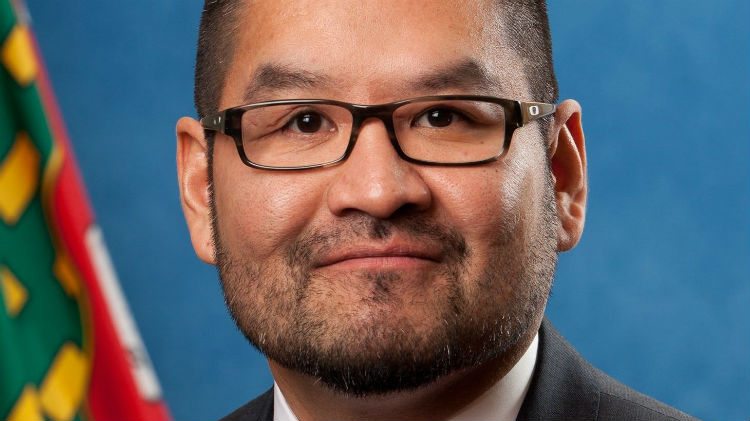The Northwest Territories’ new education minister says the future of the junior kindergarten program lies in the hands of NWT communities.
Junior kindergarten was rolled out across many of the territory’s smaller settlements over the past three years, with 16 communities currently offering some form of the program – billed as optional, free, high-quality learning for four-year-olds.
However, the territory faced criticism from some quarters over aspects of the program’s introduction.
An independent report on junior kindergarten’s strengths and weaknesses, prepared for the territorial government last September, was made public late last week.
In full: Read the summary of the newly released report (pdf)
The report concluded that junior kindergarten is valued by parents and offers a range of benefits.
However, it added, many involved feel communication about its introduction was poor; believe its implementation was ‘rushed’; and are concerned that schools may have neither the money nor the knowledge to fully deliver the program without harming other services.
The report listed eight recommendations:
- Junior kindergarten should continue where it already exists, as parents generally like it
- “One size does not fit all” – how junior kindergarten works should ideally be tailored to each community
- Funding should also vary according to community needs
- A clear communications strategy is needed for future expansion
- Decisions regarding “appropriate pupil-teacher ratios within school settings” need to be made
- More training for teachers is needed when it comes to overseeing four-year-olds
- Teachers need additional supporting documents
- The territorial government should start an “ongoing consultation and collaboration” with communities
‘Up to the communities’
Alfred Moses, the newly installed education minister, seized on the eighth and last recommendation when questioned on the report’s findings by Moose FM.
Moses answered a range of questions on the report by stating he would not elaborate “until we can get this report out to our communities … and we have heard what stakeholders have to say”.
The minister declined to comment on what scope for change may exist, such as the potential for funding or other resources to be bolstered in future, or to discuss how junior kindergarten might be tailored to individual communities and the challenges this would pose.
Moses would not confirm that the program will definitely continue, saying: “That’s going to be up to the communities when we go out and do our engagement and see what our schools, our licensed daycares and our other stakeholders have to say about that.”
In the report, daycare providers express concern that junior kindergarten had a negative impact on their livelihoods and could lead to job losses. Some question why the program was necessary, suggesting similar results could have been achieved by supporting existing providers.
In the past, schools have had reservations about eating into budgets to find money to support junior kindergarten. The territorial government’s approach has been to adjust student-teacher ratios in other age groups to accommodate junior kindergarten, without any large-scale additional funding.
Many challenges
The report’s authors conducted eight visits to communities in 2015 and used questionnaires to hear from parents, teachers, daycare providers, focus groups and community leaders. In all, more than 400 people took part.
“In some communities junior kindergarten was working as intended and in others it was not,” read the report’s main finding.
“The roll-out of junior kindergarten encountered many challenges. However, the context in different communities created different levels of success or failure with the implementation of junior kindergarten.”
Later, the report added: “Many community stakeholders believed implementation was rushed and not well planned, leaving the GNWT unable to anticipate the questions and issues communities faced.
“These individuals strongly voiced that there was a lack of consultation and felt this should have been a more grassroots process that built on the strengths of each community.”
Asked if the previous territorial government’s decision to roll out junior kindergarten when it did had been a mistake, Moses told us: “I can’t speak on that. I wasn’t a minister in the last assembly so I can’t really speak on how it was rolled out.
“We want to make sure that we do it right. We want to make sure all communities have that opportunity to give input.
“We want to make sure that we engage our stakeholders in a better setting to help develop any plans that they might have for their communities.”
Moses first saw the report – which came out on the cusp of a territorial election – in early January. He said there is no fixed timeline for progress on junior kindergarten, adding: “We’ll begin our consultations as soon as we can.”
So far, junior kindergarten has not been introduced in Yellowknife.
Members of the YK1 school board are set to sit down with Moses and other MLAs on Tuesday evening this week.




